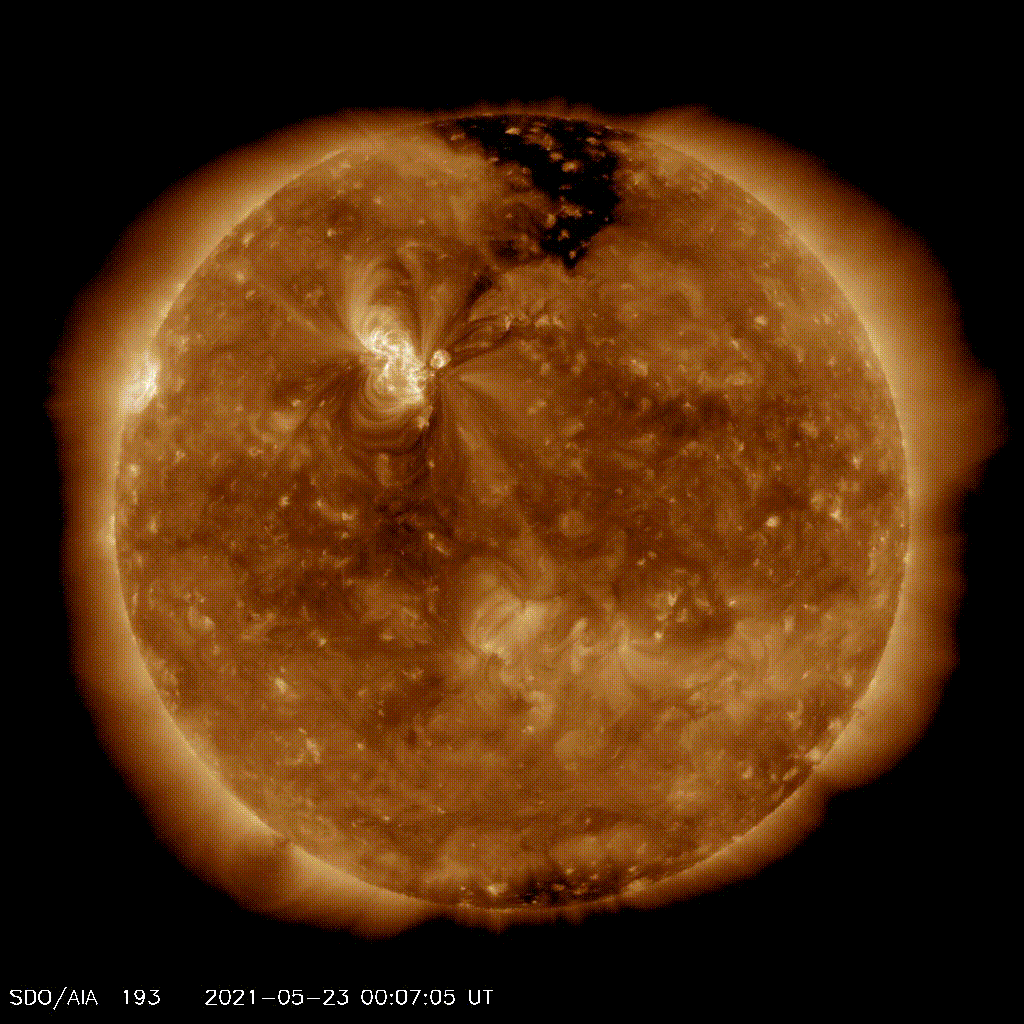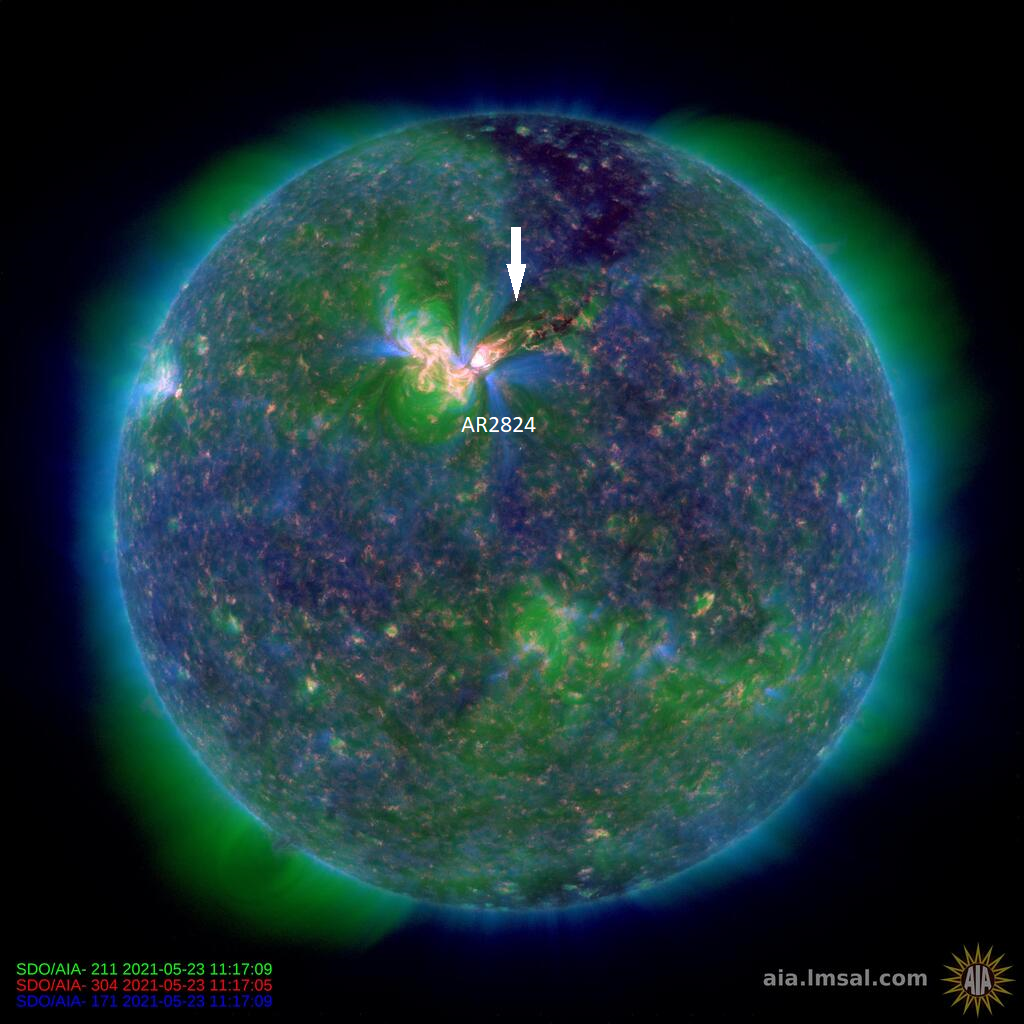Space Weather Alert - 25th May 2021
What Has Happened?
An active region on the Sun has produced at least three Earth-directed coronal mass ejections (CMEs) which lifted off on the 23rd May. Based on the estimated speed, we anticipate that they will become geoeffective on the night of the 25th of May.
The geomagnetic field is expected to be disturbed as a result of the arrival of the CMEs and may reach minor to moderate STORM levels, if we experience any periods of southward IMF during the following days.
Assuming clear, dark skies, there is a chance of seeing the aurora on the early morning of the 26th of May. Those in Scotland, northern England and Northern Ireland have the better chance if the weather is favourable.
Sign-up to receive Geomagnetic Disturbance Alert emails.
Follow us on Twitter:
Follow @BGSauroraAlert for more occasional aurora alerts.
Follow @BGSspaceWeather for daily space weather forecasts.
Glossary
- BGS
- The British Geological Survey is one of the Natural Environment Research Council's Research Centres.
- CME or Coronal Mass Ejection
- The eruption of a portion of the outer atmosphere of the Sun into space, caused by rapid changes in its magnetic field. Often occurs along with a solar flare.
- Solar Wind
- The ever-present expansion of the Sun’s hot outer atmosphere into the solar system, which carries space weather within it.



